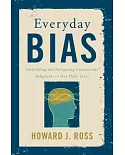This monograph provides an empirical analysis of the enlistment, attrition, and reenlistment effects of bonuses, applying statistical models that control for such other factors as recruiting
resources, in the case of enlistment and deployments in the case of reenlistment, and demographics. Enlistment and attrition models are estimated for the Army and our reenlistment model
approach is twofold. The Army has greatly increased its use of reenlistment bonuses since FY 2004, and we begin by providing an in-depth history of the many changes in its reenlistment bonus
program during this decade. We follow this with two independent analyses of the effect of bonuses on Army reenlistment. As we show, the results from the models are consistent, lending credence
to the robustness of the estimates. One approach is extended to the Navy, the Marine Corps, and the Air Force, to obtain estimates of the effect of bonuses on reenlistment for all services. We
also estimate an enlistment model for the Navy. The estimated models are used to address questions about the cost-effectiveness of bonuses and their effects in offsetting other factors that
might adversely affect recruiting and retention, such as changes in the civilian economy and frequent deployments.





















